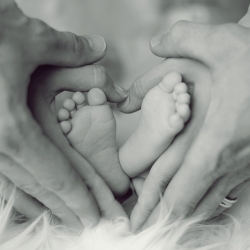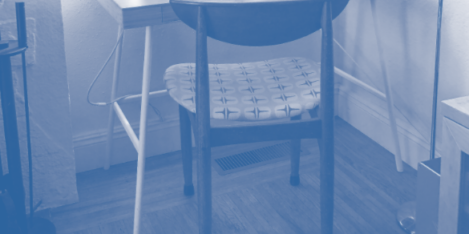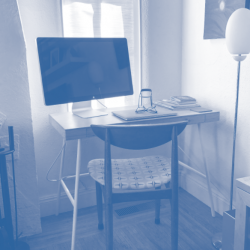To provide the best experiences, we use technologies like cookies to store and/or access device information. Consenting to these technologies will allow us to process data such as browsing behaviour or unique IDs on this site. Not consenting or withdrawing consent, may adversely affect certain features and functions.
The technical storage or access is strictly necessary for the legitimate purpose of enabling the use of a specific service explicitly requested by the subscriber or user, or for the sole purpose of carrying out the transmission of a communication over an electronic communications network.
The technical storage or access is necessary for the legitimate purpose of storing preferences that are not requested by the subscriber or user.
The technical storage or access that is used exclusively for statistical purposes.
The technical storage or access that is used exclusively for anonymous statistical purposes. Without a subpoena, voluntary compliance on the part of your Internet Service Provider, or additional records from a third party, information stored or retrieved for this purpose alone cannot usually be used to identify you.
The technical storage or access is required to create user profiles to send advertising, or to track the user on a website or across several websites for similar marketing purposes.
 The Commercial Park Group, a partnership between Sir Robert McAlpine and the John Baker Group, has announced it will invest £200 million to kick-start developments of two million sq ft of new offices across locations in the south east of England. (more…)
The Commercial Park Group, a partnership between Sir Robert McAlpine and the John Baker Group, has announced it will invest £200 million to kick-start developments of two million sq ft of new offices across locations in the south east of England. (more…)










 There’s no question what has occupied the majority of attention for risk managers during 2020. But
There’s no question what has occupied the majority of attention for risk managers during 2020. But 
 Almost half (46 percent) of workers expect their employers to provide them with green technology equipment, such as laptops, printers and other devices, according to new research from
Almost half (46 percent) of workers expect their employers to provide them with green technology equipment, such as laptops, printers and other devices, according to new research from 
 The repercussions of Covid-19 for the small business community have been particularly ruinous. Recent figures paint a worrying picture, revealing that approximately 76,300 SMEs in London alone ceased operations completely as a direct result of the pandemic, with lockdowns costing from £30,000 to £75,000 for one in ten small businesses. As the most vulnerable business segment in the current crisis, SMEs needed the biggest support and, by the end of April, had already received over £4 billion via the government’s
The repercussions of Covid-19 for the small business community have been particularly ruinous. Recent figures paint a worrying picture, revealing that approximately 76,300 SMEs in London alone ceased operations completely as a direct result of the pandemic, with lockdowns costing from £30,000 to £75,000 for one in ten small businesses. As the most vulnerable business segment in the current crisis, SMEs needed the biggest support and, by the end of April, had already received over £4 billion via the government’s 
 Earlier this month, in a sudden and unexpected turn of events, the prime minister’s chief adviser, Dominic Cummings, walked out of 10 Downing Street for the last time, having resigned/been asked to leave, depending on whose account of the episode you believe. However, the affair unfolded in reality, it seems clear that the departure of Cummings and Director of Communications, Lee Cain, was precipitated by workplace conflict and a series of internal disagreements, which had pushed their relationships with certain colleagues to breaking point.
Earlier this month, in a sudden and unexpected turn of events, the prime minister’s chief adviser, Dominic Cummings, walked out of 10 Downing Street for the last time, having resigned/been asked to leave, depending on whose account of the episode you believe. However, the affair unfolded in reality, it seems clear that the departure of Cummings and Director of Communications, Lee Cain, was precipitated by workplace conflict and a series of internal disagreements, which had pushed their relationships with certain colleagues to breaking point. 
 A large number of British companies companies say they plan to install monitoring software of some kind to keep an eye on employees working from home, according to a new survey. Around 20 percent of employers said their firms have either implemented, or plan to implement, online software which monitors their remote workers.
A large number of British companies companies say they plan to install monitoring software of some kind to keep an eye on employees working from home, according to a new survey. Around 20 percent of employers said their firms have either implemented, or plan to implement, online software which monitors their remote workers. 
 Women taking maternity leave collectively lose out on £3.2bn worth on earnings, a fall of nearly half their average annual salary, claims new research from
Women taking maternity leave collectively lose out on £3.2bn worth on earnings, a fall of nearly half their average annual salary, claims new research from 
 The location of a potential employer’s workplace is becoming more important to workers – despite a surge in people working remotely, according to outplacement firm
The location of a potential employer’s workplace is becoming more important to workers – despite a surge in people working remotely, according to outplacement firm 
 In a recent
In a recent 
 A new study on work-life balance claims that the COVID-19 crisis is a crucial factor – but not the only one – behind low levels of wellbeing among employees working from home. A research team including Professor Ilke Inceoglu, Professor of Organisational Behaviour and HR Management at the
A new study on work-life balance claims that the COVID-19 crisis is a crucial factor – but not the only one – behind low levels of wellbeing among employees working from home. A research team including Professor Ilke Inceoglu, Professor of Organisational Behaviour and HR Management at the 








December 3, 2020
Hybrid working presents us with a once in a generation opportunity
by Michael Cockburn • Comment, Coworking, Flexible working, Technology